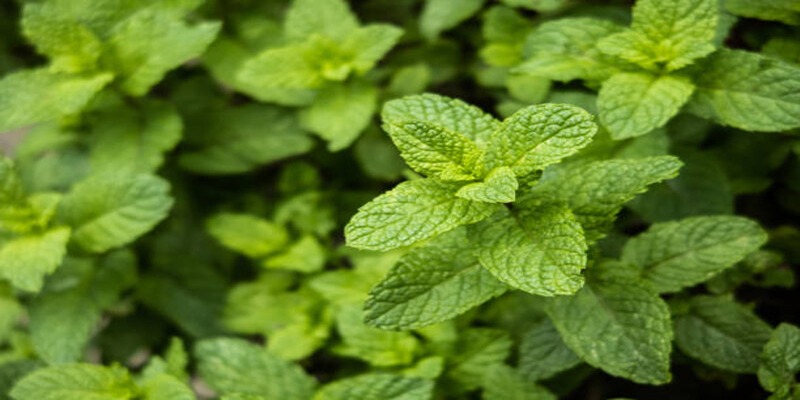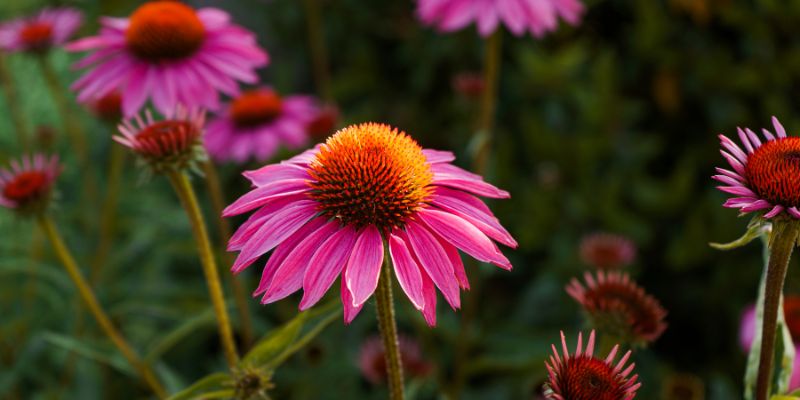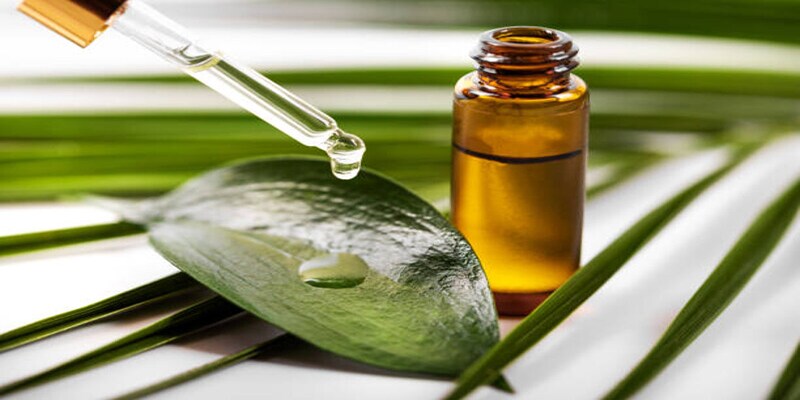Know About Echinacea Benefits, Uses, Dosage, Side Effects and More
Nov 20, 2023 By Madison Evans
Echinacea, which you may also know as purple coneflower, is related to ragweed and sunflower. There are nine species of Echinacea, most commonly found in the United States, Europe, and Canada.
Echinacea is rich in antioxidants and contains various active compounds (caffeic acid, phenolic acids, polyacetylenes, and rosmarinic acid). Therefore, their leaf, roots, and flowers are used in medicines to treat flu, inflammation, and other health issues.
The article reviews the health benefits of Echinacea. So, continue reading if you want to learn more about Echinacea, its uses, dosage, and potential side effects.

What Are The Benefits and Uses Of Echinacea?
Let’s look into the remarkable health benefits of Echinacea:
High in Antioxidants
Echinacea are plants which are rich in antioxidants. Antioxidants are the compounds that protect our body against oxidative stress that ultimately causes longer-term diseases such as heart disease and cancer. Echinacea contains higher amounts of antioxidants, rosmarinic acid, alkamids, and flavonoids which enhance the antioxidant effect of Echinacea.
Lowers the Blood Sugar Level
Echinacea helps to decrease the risk of serious health issues such as high blood pressure. Some animal studies have shown that Echinacea has some compounds that maintain the blood sugar level. Other studies have also shown that the insulin level can be controlled due to Echinacea's antioxidant properties. However, research showing Echinacea's effect on human blood levels is yet to be explored.
Positive Impact on the Immune System
Echinacea is the natural remedy to protect our immune system from any damage. Some research studies have shown that Echinacea protects the immune system from oxidative stress and maintains overall health due to its antioxidant properties.
Echinacea may also have anti-viral properties, which protect the immune system during viral infections and help combat diseases. So, it helps recover patients from a common cold or viral disease.
Common Cold
Echinacea products are associated with treating the common cold symptoms in adults, supported by many researchers. At the same time, some researchers do not support this statement. The possible reason for the contrast is the different forms and kinds of Echinacea used in the research.
In short, some researchers have shown that Echinacea treats the common cold by 45 to 58%, while some disagree. So, more research is needed to be clear on this point.

Reduces the Inflammation
Some studies have shown that Echinacea may decrease inflammation as 30 days of Echinacea uptake may lessen the inflammation in knee joint patients. Some studies have shown that it also helps to decrease markers of inflammation.
Promotes Skin Health
Echinacea extracts play a significant role in treating skin-related problems, hence beneficial for our skin health. Studies have shown that Echinacea extracts help to treat acne. Another study in 2010 found that Echinacea extracts containing creams are beneficial for hydration and anti-aging effects.
Reduces the Anxiety Level
A study was presented showing the participants who took Echinacea extracts showed significant improvements in their anxiety level than placebo. Another study in 2020 found that Echinacea compounds help to block the depression markers and also decrease the anxiety level in patients.
Echinacea Dosage
There is no standard dosage of Echinacea helpful in treating the disease. There is a need to find how much of this plant will be safe to consume. However, reviews found that 2400mg of Echinacea, when used daily for 24 days, can prevent the common cold symptoms or take up to 4000 mg in the acute stage.
There is no medical evidence to support such claims. Always ask your doctor about the Echinacea dosage. More research has to be done to find the standardization of recommended Echinacea dosage.
What Are The Side Effects Of Echinacea?
Not just the advantages, Echinacea may have some allergic reactions and can also damage your organs. The moderate and per-scripted uptake cannot lead to this situation, but it worsens when people take it excessively without any doctor’s recommendation. Here are some of the possible damages that Echidnas may cause to your body;
Allergic reactions;
Some people may get allergic to Echinacea. Not many, but few people are already allergic to flowers belonging to the daisy family. If you are the one, you should be cautious about taking Echinacea.
The possible symptoms could be rash, itching, or skin irritation. If you experience any of them, consider discontinuing their usage and consult a medical specialist.
Echinacea and pregnancy
Taking in a moderate amount is not harmful. However, always ask your doctor while using it, especially when you’re breastfeeding or pregnant.
Gastrointestinal issues
In some cases, Echinacea may cause gastrointestinal issues. Some people taking Echinacea experienced stomach pain, bloating, and nausea. Due to its after-taste effect, people feel bloated and vomit while taking it with some tasty food might reduce the effect.
Asthma exacerbation
If you have asthma, you should avoid taking Echinacea as it increases the symptoms of asthma. Always consult your doctor before taking it.
Sleep deprivation (Insomnia)
After taking Echinacea, You may feel dizziness and numbness in your head, which ultimately ruins your sleep cycle. The patients regularly taking Echinacea may experience such symptoms. If you are the one, stop taking it.
Interactions With Other Medicines
Echinacea may interact with the medication you are already taking, which may lead to a worsening of your organ’s working. So, if you are taking any medicine along with Echinacea, avoid taking it. For instance, patients taking Immune medications may experience autoimmune disorders after taking Echinacea dosage.
Also, avoid taking it with foods like coffee, cola, energy drinks, or any caffeine product. These are not all the side effects you can experience, so do not rest assured; always consult the doctor before taking Echinacea.
Conclusion:
Echinacea is commonly found in the USA, and Native Americans have used it for centuries. It is rich in various active compounds. They are also known as Red sunflower or Rudbeckia purpurea and have been used in medicines for a long time.
The plants are popular for their immune health benefits. Besides that, studies have proved these plants are effective for cold, inflammation, and anxiety. You must not consume more than the suggested amount by your doctors, as Echinacea can cause fever, nausea, numbness, or dizziness.
-
 Food Nov 08, 2023
Food Nov 08, 2023Unveiling the Health Secrets: The 8 Key Wellness Benefits of Mint
Discover the myriad of health benefits mint offers, from aiding digestion to boosting energy. Learn how to incorporate this nutrient-rich herb into your daily routine.
-
 Food Nov 20, 2023
Food Nov 20, 2023Know About Echinacea Benefits, Uses, Dosage, Side Effects and More
Echinacea are rich in antioxidants, commonly found in the USA and Canada, and are popular for their anti-inflammatory properties
-
 Food Nov 08, 2023
Food Nov 08, 2023Top 15 Fruits to Beat the Heat This Summer
Discover our top 15 summer fruits for beating the heat. Learn about their unique nutritional benefits and how they can keep you refreshed and healthy.
-
 Food Nov 08, 2023
Food Nov 08, 2023Versatile Magic: 8 Everyday Uses of Tea Tree Oil You Need to Know
Discover the numerous benefits and everyday uses of Tea Tree Oil. This versatile essential oil can enhance your skincare, cleaning routines, and much more!
